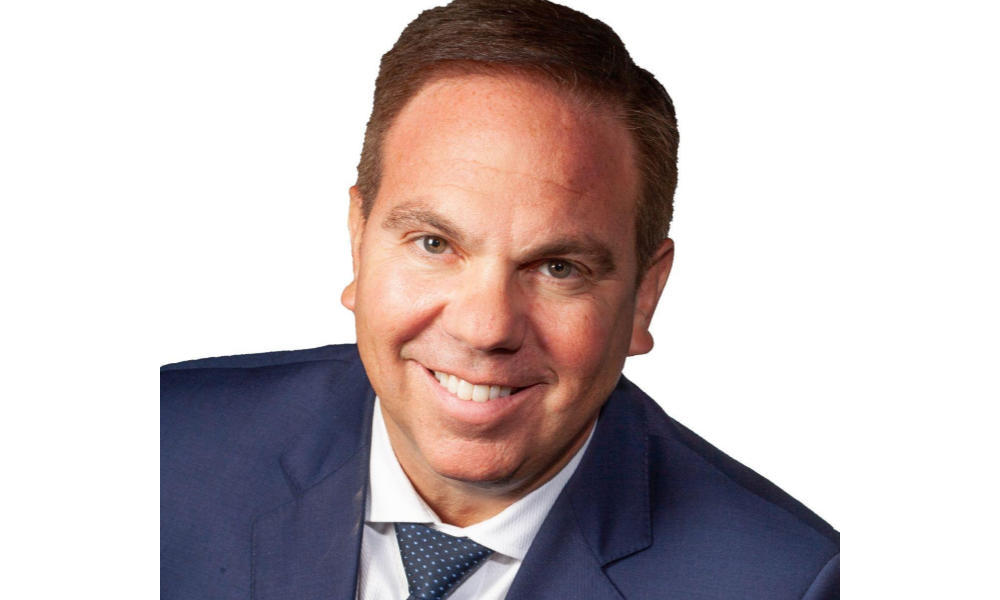Acquisitions
Inside the Boardroom: Craig Deitelzweig
By
Joseph Richter

The Real Estate Daily Beat equips real estate firms and industry leaders with exclusive news and insights to inform impactful decision making. Learn more about corporate subscriptions here.
Craig Deitelzweig, President & CEO of Marx Realty, joined the Daily Beat for an interview. He laid out his bullish outlook for the office market, and why he thinks it’s a generational buying opportunity.
Daily Beat: Can you please share your background?
Craig Deitelzweig: I started out as a real estate lawyer at Skadden and really enjoyed working there. I developed a love for real estate and wanted to focus more on the business side than the legal.
I then worked for a private developer and subsequently joined a private equity firm. At that point, I realized that I had a real aptitude for repositioning assets. Over the years, I have been fortunate to reposition more than fifty.
Around five years ago, I joined Marx and have been growing the company. We have been rethinking our assets and bringing a hospitality mentality into the office space.
Daily Beat: That trend has certainly accelerated over the past few years.
Craig Deitelzweig: We did it at 10 Grand Central about four and a half years ago and it’s really successful today. The whole experience is very hospitality-like. We have a doorman outside, a Marx Mobile, which is a house car that drives our tenants to different meetings and lunches.
The building is very anti-corporate. We are the opposite of so many of these buildings that are white, marble, and cold –– Marx buildings are warm and inviting. That’s really been our success before the pandemic, but it’s really accelerated ever since then.
Daily Beat: What’s your portfolio breakdown?
Craig Deitelzweig: Probably around 60% office, and the rest retail.
Daily Beat: What’s the average age of the office buildings?
Craig Deitelzweig: We have a lot of historic buildings from the 1920’s and 1930s, but we think of them as modern new buildings, even though they have a historic shell. Our average age is probably around 50 years old.
We’ve been buying a lot recently too and bought two older office buildings during the pandemic. Both became generic and lackluster and we brought back its heritage, beauty, and soul. One was called the Herald, which is where Jackie Kennedy had worked for her first job. All the furniture is based on items of clothing that she wore.
This approach is not commonplace in the market, but tenants really gravitate toward these types of buildings that have been repositioned.
We also have had great success with 545 Madison, which we repositioned during Covid. Occupancy increased from 68% to now 100%. When tenants came to tour that space, they appreciated the hospitality aesthetic.
Daily Beat: ADP Research found that 64% of workers would rather quit their jobs than return to an office full time. How has occupancy been in your buildings?
Craig Deitelzweig: Flight to quality is real and we have been the beneficiaries. Our physical occupancy has been at 87%.
Leasing and touring activity from August was the most robust it’s ever been. People are touring spaces and we’re seeing a lot of employers bringing in groups of workers to get buy-in on the new space.
They all want space that will get their employees excited to go back into the office.
Leaders have often said they want their employees back in the office because they think it’s the best way for them to engage with their employees and create culture. When people are remote, they’re more inclined to quit because they don’t have any attachment to their company. That’s what you’re seeing in the poll.
Daily Beat: So it sounds like you believe that office will fully come back.
Craig Deitelzweig: Yes. If you look at these companies that say that they’re going to remain remote forever, my guess is they will not exist in five years. When Yahoo and IBM experimented with it, remote work failed. It’s really hard to get your mojo back once you make that shift. That’s what a lot of companies are going through right now. The various polls don’t paint a full picture.
For instance, my son recently graduated college and he wants to be in the office and learn. Younger people really do want to be in the office.
Daily Beat: Kastle says that the average physical occupancy in Manhattan is around 47%. The 87% number in your buildings is impressive.
Craig Deitelzweig: Yes. People who come into this building have come in for a reason and want to be there. We have a lot of groups who were coming in four days, and are now coming in five days a week.
Additionally, a lot of tenants are expanding because there was a lot of growth during the pandemic period and they need more physical space. It’s a lot of contradictions that you’re seeing, but I think it’s all going to settle out in a really good place. I’m bullish on New York City office.
Daily Beat: Is flight to quality overrated? Ultimately, are employees going to work?
Craig Deitelzweig: No. It’s really an experience that starts with the doorman outside. I think we’re still the only office building that has a doorman opening the doors for their guests and visitors. That whole experience is really important to the psyche of the employees in the building.
A lot of tenants really care about our lounge floors and conferencing spaces. It’s probably more important than the actual physical office spaces that they’re using, which was never the case previously. Tenants really do use those spaces all the time for meetings and also more casual types of experiences.
Daily Beat: Where else do you own office assets?
Craig Deitelzweig: We’ve been focusing on New York, Washington DC, and Atlanta, but we’re in sixteen states.
Daily Beat: Vornado had too much floating rate debt and they didn’t prepare for macro conditions. How have you prepared?
Craig Deitelzweig: We saw this coming and thought that inflation rising would have an impact on interest rates. Marx Really therefore locked in all of our debts for the long term, so we don’t have any loans maturing for the next three years.
Daily Beat: How much have operating expenses increased?
Craig Deitelzweig: We locked in a lot of our energy expenses, so we’re good in that sense. The same with our cleaning, which are the two biggest cost items. Ultimately, we’re going to start to see increases in operating expenses, but it hasn’t been that impactful yet. In terms of build-outs, those have continued to increase because of supply chain issues.
Daily Beat: Do you manage your own buildings?
Craig Deitelzweig: Yes. That’s something that changed since I joined. Nobody is better than an owner in managing their physical properties. We see things that others won’t see and add thoughtful details that make all the difference in the world to tenants.
Daily Beat: Do you see good acquisition opportunities in the office sector?
Craig Deitelzweig: We’ve been looking in New York for years to acquire assets and we just haven’t seen properties at a cost basis that made sense to us. Now we’re finally seeing deals that make sense, but you have to be very careful in this market.
The downtown market is a difficult one, so we’re focused on mostly Midtown, which is a dynamic area near transportation. In terms of the assets itself, we have to make sure it’s not just a price play and has the physical attributes that can really excite people to that space.
Daily Beat: Have you seen a shift to shorter lease terms? We’ve seen many five to seven-year renewals.
Craig Deitelzweig: That’s been happening for a while. Renewals are typically five or seven years, while new lease are 10 or more. We’ve been seeing that for quite some time.
Daily Beat: What’s your typical structure? Do you go out and raise for every new acquisition or do you operate out of a fund?
Craig Deitelzweig: We acquire some assets from our own balance sheet and there are also multiple groups that we partner with. Our team plans to increase institutional partnerships right now, especially with the generational types of opportunities that we are seeing in the office market.
Daily Beat: A borrower loses control once they close on a loan, with a CMBS deal being the most obvious example. How do you protect yourself as a borrower?
Craig Deitelzweig: We don’t take on CMBS debt. All of our debt is with lenders where we have relationships with and they keep it on their balance sheet for that very reason. In the CMBS world, you have no control over it. Additionally, there’s nobody to talk to if something goes wrong.
Daily Beat: Even if you have a good relationship with a lender, I guess there’s really no way to prevent them from selling it too.
Craig Deitelzweig: The lender groups we work with have a history of keeping loans on their balance sheet, which we have seen across many deals with them. Moreover, when underwriting your company, if they feel particularly comfortable, they’re going to want to keep it on their balance sheet. We have not run into that issue.
With that being said, we do think that there will be assets or notes to acquire based on borrowers having a difficult time with their lenders.
Daily Beat: Do you think Proptech is a complete bubble or is there any valuable technology at play?
Craig Deitelzweig: I think it’s a mix. Some of the technology is not necessarily very unique, but there is some that’s meaningful. I think Proptech on the construction side has enormous possibilities. For instance, using robots to lay bricks is wonderful.
The reality is that a lot of the big names in the space like WeWork are not real technology companies.
*The interview has been edited and condensed for clarity.





